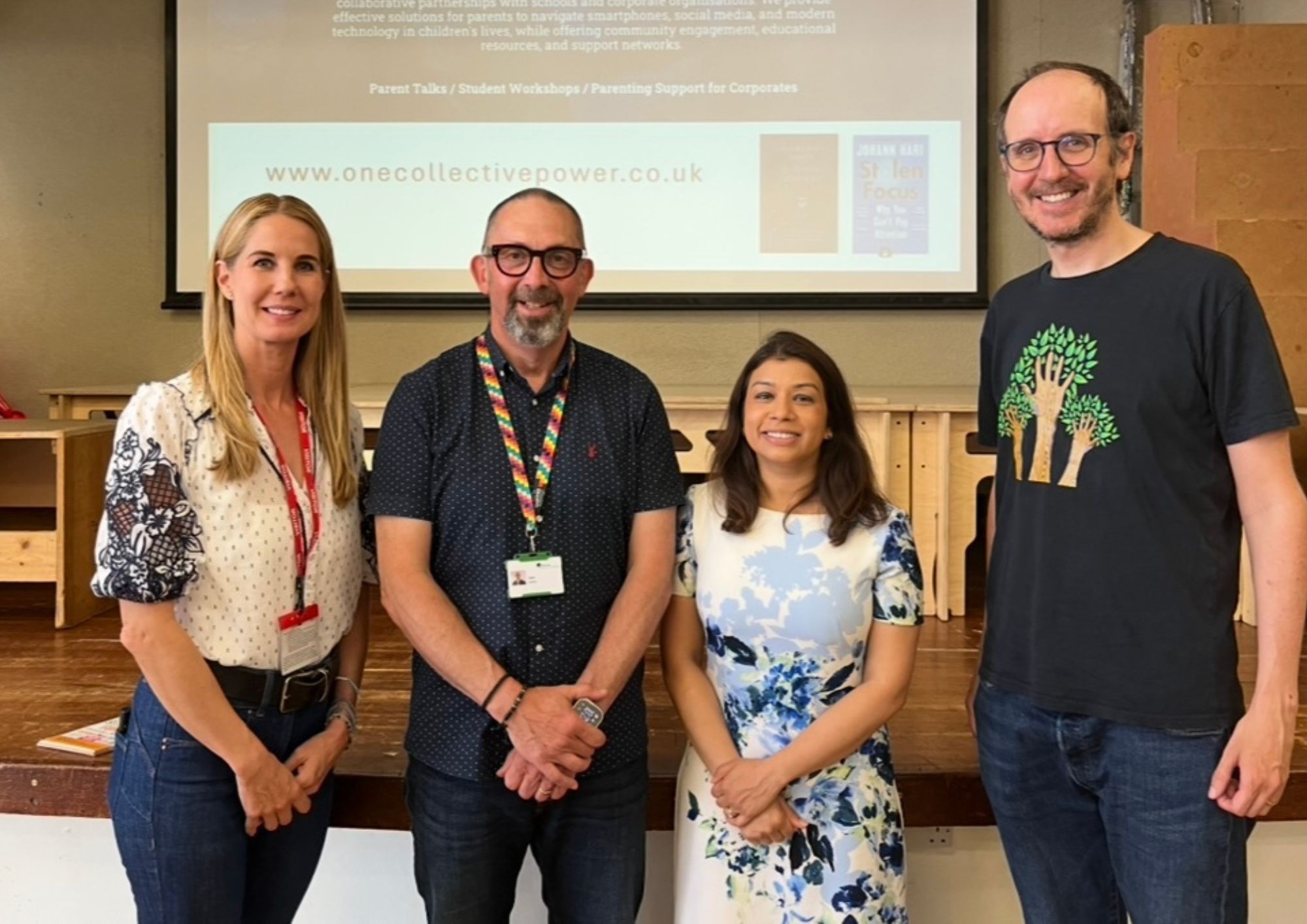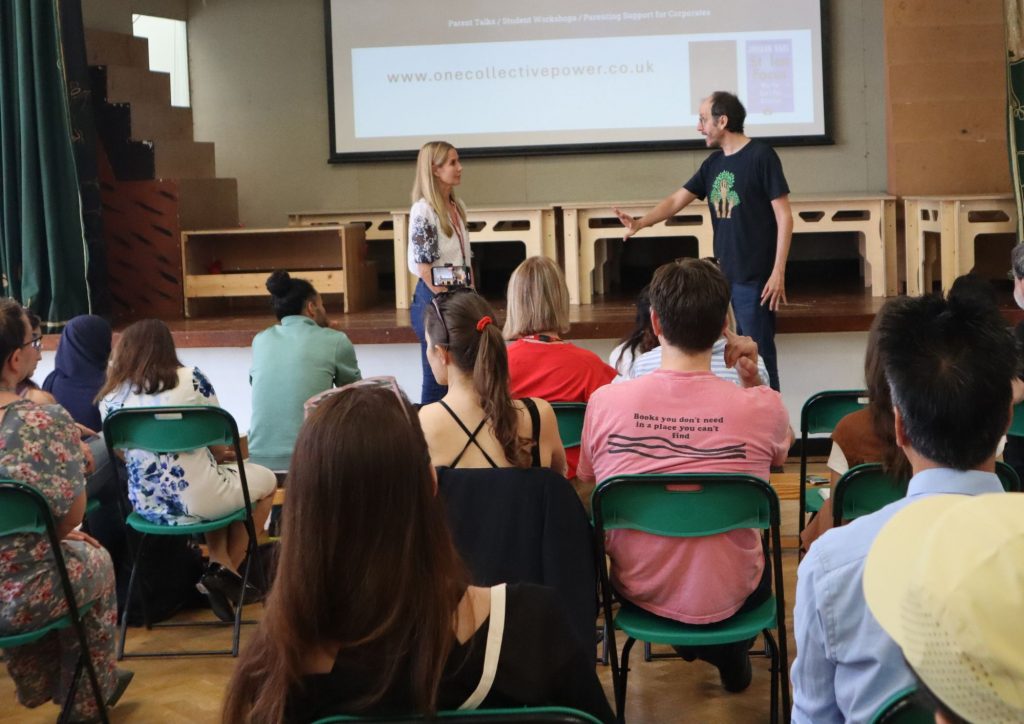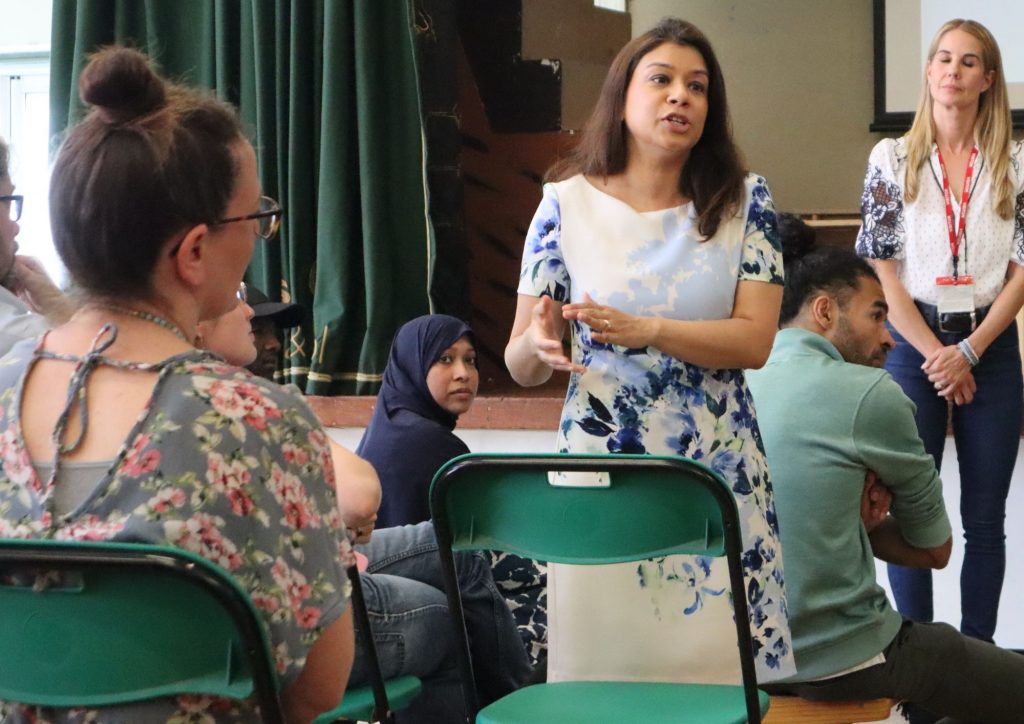Parents are urged not to give their kids a smartphone until they are 14
Adolesence writer among speakers at parents' meeting
Monday, 23rd June 2025 — By Caitlin Maskell

Nova Eden, headteacher John Hayes, Hampstead and Highgate MP Tulip Siddiq and Jack Thorne
THE creator of the agenda-setting series Adolescence has warned a government intervention is needed on children’s unrestricted access to phones and social media.
Jack Thorne was a guest at an online safety meeting held at Gospel Oak primary school on Friday, alongside Nova Eden, a children’s mental health expert who campaigns for phone-free childhood.
Adolescence, screened on Netflix, raised questions around young children having access to explicit images, harmful content and misogynistic ideologies.
The drama provided an extreme example of a boy being arrested after the murder of a girl at his school, but opened a wider debate about what primary school-aged children and young teens were being exposed to – often without their parents realising.
Speaking to the New Journal, Mr Thorne said: “This is the moment we have to intervene because if we can intervene before kids get to that crucial age of 11 – the age where the vast majority of kids get their smartphone – having that conversation about access before is really important.”
He added: “The government could be doing much more than they are – there are other countries taking more action on this and it’s sad that our government isn’t.”
Australia is enforcing social media restriction for under 16s.

Ms Eden and Mr Thorne in discussion
Mr Thorne added: “I understand the government is under massive economic pressure and there is a need to get growth into our industries but this is about our future growth too. If we don’t solve this problem then kids will end up in deeper trouble and then what kind of generation will be coming out to be employed?”
Ms Eden, founder of One Collective Power, chaired the talk and said that the average teenager spends seven hours and 40 minutes on their smartphone a day – the equivalent of having a part time job.
She added that research showed that 94 per cent of children are exposed to pornography by age 14.
“There is one thing which we have no control over as parents and that is what other people send to our children,” said Ms Eden.
“Pornography is very graphic these days, it’s very addictive and is not a real representation of what a loving relationship is. It’s very confusing for these young boys.”
She added: “I think as parents we are all struggling with the excessive screen time and the battles with children but actually the extent of the damage and the content that is being pushed into our children’s news feeds is much worse than most people realise.”
“The government is frustratingly slow to respond in this country and we really need meaningful change in the UK to protect our children.”
One of the solutions Ms Eden raised was for parents to sign the Parent Pact – a virtual agreement between parents that they will not give their child a smartphone before the age of 14 and not let them on social media before turning 16.

Hampstead and Highgate MP Tulip Siddiq at Gospel Oak Primary School
This would in theory remove the pressure of children asking for a phone because all of their friends have one – and parents fear that their sons and daughters will feel left out.
Ms Eden is now working on issuing a joint consortium letter to secondary school headteachers in Camden in a move to make all their schools smartphone free.
As part of the initiative Camden secondary schools will inform their incoming Year 7 cohort for 2025 that smartphones will no longer be permitted in schools with the policy being rolled out over the coming years until it is entirely smartphone free, Camden will become the fourth north London borough to take this approach.
Tulip Siddiq, MP for Hampstead and Highgate who attended the meeting told the New Journal: “Government has a key role to play in keeping children safe, but it must be a collective effort alongside parents, teachers and technology companies.
“I believe technology can be a force for good, but it can also be highly damaging if used in the wrong way. As someone who was recently a victim of an AI deep fake, I am very conscious as an MP that the law needs to keep up with innovation.
“More steps will be needed to protect children online, and I am working closely with local families and schools to stay ahead and campaign for change.”